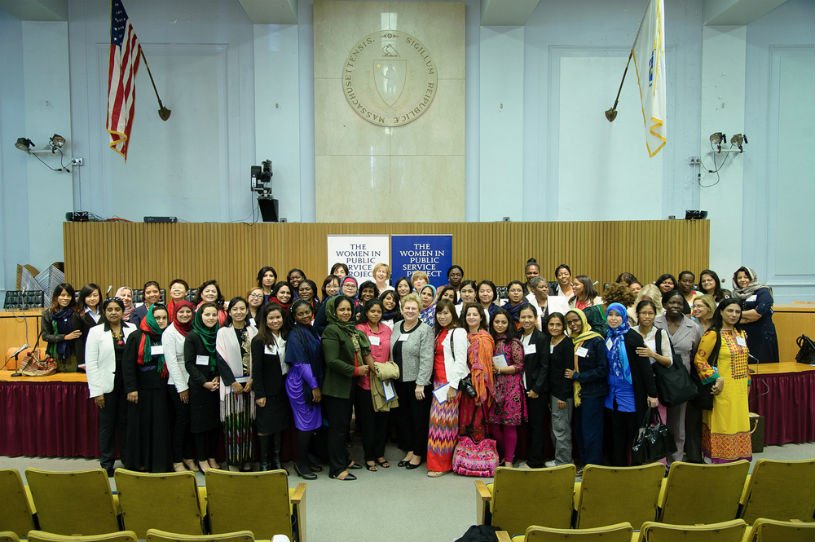
Women In Public Service Project Institute Supports Women Rebuilding Communities
Their stories still rivet me: Wai Wai Nu, who spent seven of her 27 years as a political prisoner and now fights for the rights of marginalized women in Myanmar; Achol Williams Amoi, a mother of seven girls and the first woman speaker of the State Legislative Assembly in South Sudan, a country struggling after more than two decades of war; and Tasmiah Rahman who is working on getting women into "formal" employment (versus being self-employed) as a way of getting into more secure and influential positions in Bangladesh.
This past week, I was humbled and inspired by a group of 48 women who traveled to Massachusetts from across the globe to attend the Women in Public Service Project (WPSP) Institute. Co-hosted by Smith, Simmons, and Mount Holyoke colleges, the institute welcomed these professional women, who hailed from some of the most troubled areas of the world to receive mentoring and support in their work to rebuild their communities torn by war, political violence, and human rights violations.
As an American woman who came of age during the U.S. women's right's movement, and who has devoted her career to equality for women and girls, my experience with these visiting women has been foundational in my understanding of the universal cause of women's advancement worldwide.
Whether fighting for equal pay for women in the United States, or providing access to an education for girls in a remote village, all world citizens -- men and women -- should be relentless in agitating for equality and justice for all.
These ideals are nothing new. In 1970, I was deeply moved by President John F. Kennedy's call for community service, and my husband and I joined the Peace Corps family program and spent three years in the Republic of the Philippines. Talking with the women of the WPSP project this week, I was reminded of some of the important lessons I learned in the Peace Corps: the need for cultural understanding, the importance of treating every person with dignity and respect, and the recognition that leadership is a privilege, not an entitlement.
These lessons remain true to today, and programs like the WPSP help to provide solutions in the form of assisting women leaders. If anyone needs proof of the dire situation that women and girls face around the world, they need only to turn on the news, on any given day..
Last week, two teenage girls were raped, killed, and hanged in a tree in India. In April, more than 200 Nigerian schoolgirls were kidnapped by anti-government militants. In 2012, the young activist Malala Yousafzai was shot in the head as she traveled to school.
In many parts of the world, women and girls are regularly mistreated, prohibited from gaining an education, used as instruments of war, and largely left out of the political and economic processes.
Many of the WPSP participants have firsthand experience with these atrocities. Some of them help the women and girls who have been affected. All of them work toward the goal of moving past the violence to create more peaceful and inclusive societies.
And yet, despite the dire situations they face, the women I met are amazingly optimistic about their future. They understand the serious challenges they face, but they choose to focus on the opportunities.
For example, several women delegates from Afghanistan presented me with a gift from their country that included magazines. They specifically said they wanted me to see the magazines because "all you see in America about Afghanistan is bad. We want you to also see the good."
The process of bringing peace -- and more women in positions of leadership -- to the world, will take time. President Kennedy understood this clearly, saying in his inaugural speech in 1961: "All this will not be finished in the first 100 days. Nor will it be finished in the first 1,000 days, nor in the life of this administration, nor even perhaps in our lifetime on this planet. But let us begin."
Despite the horrors these women have witnessed, they have bravely begun the hard work to ensure that the future is much better for the next generation. And we must support them.
Helen Drinan
President, Simmons College
